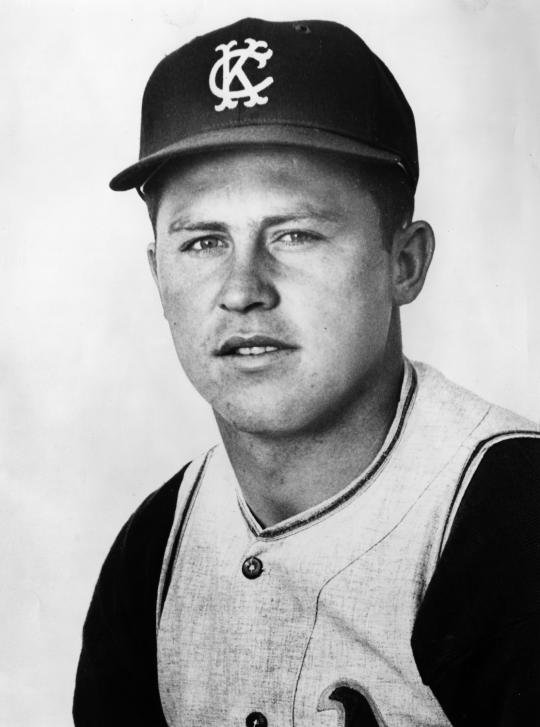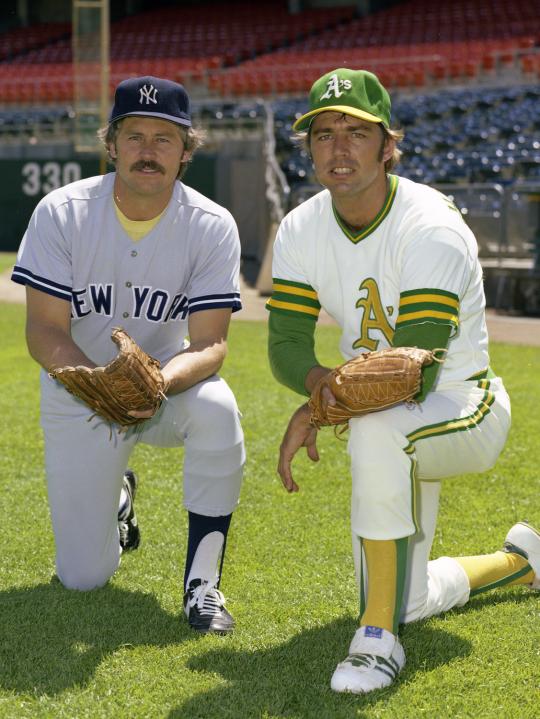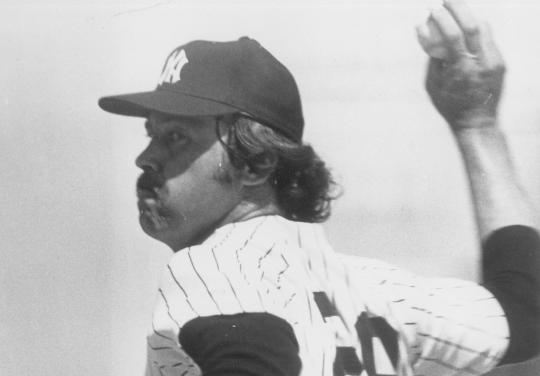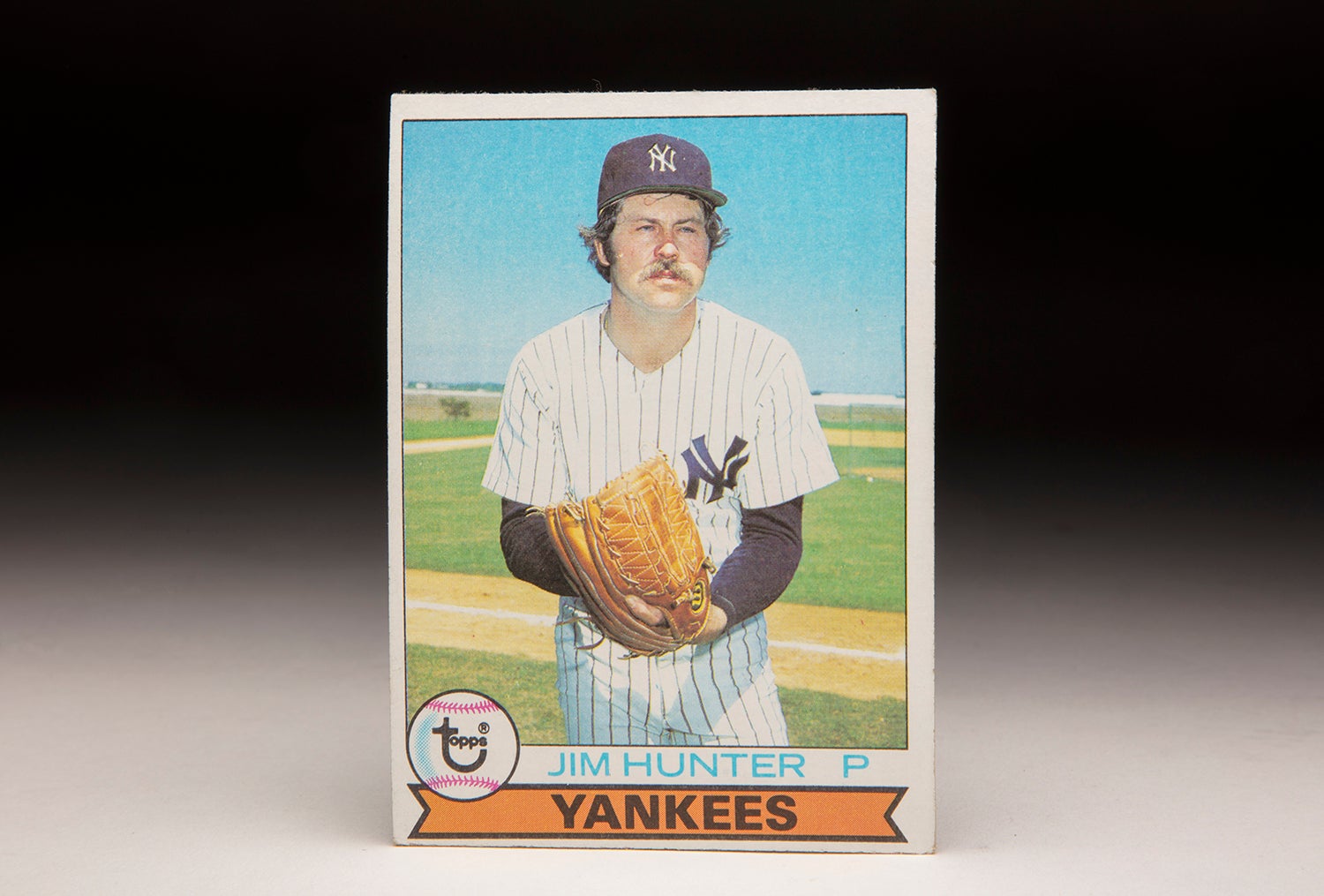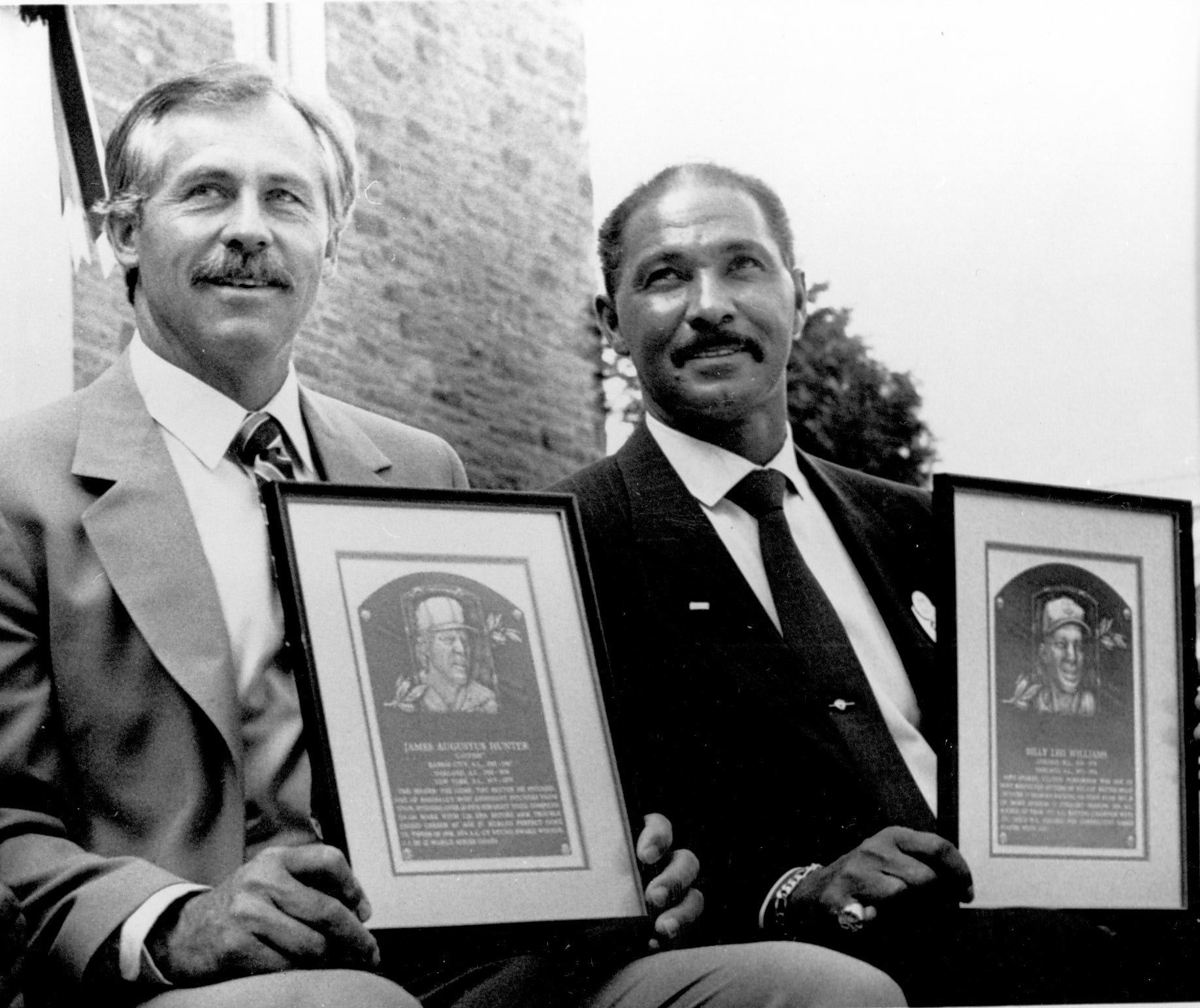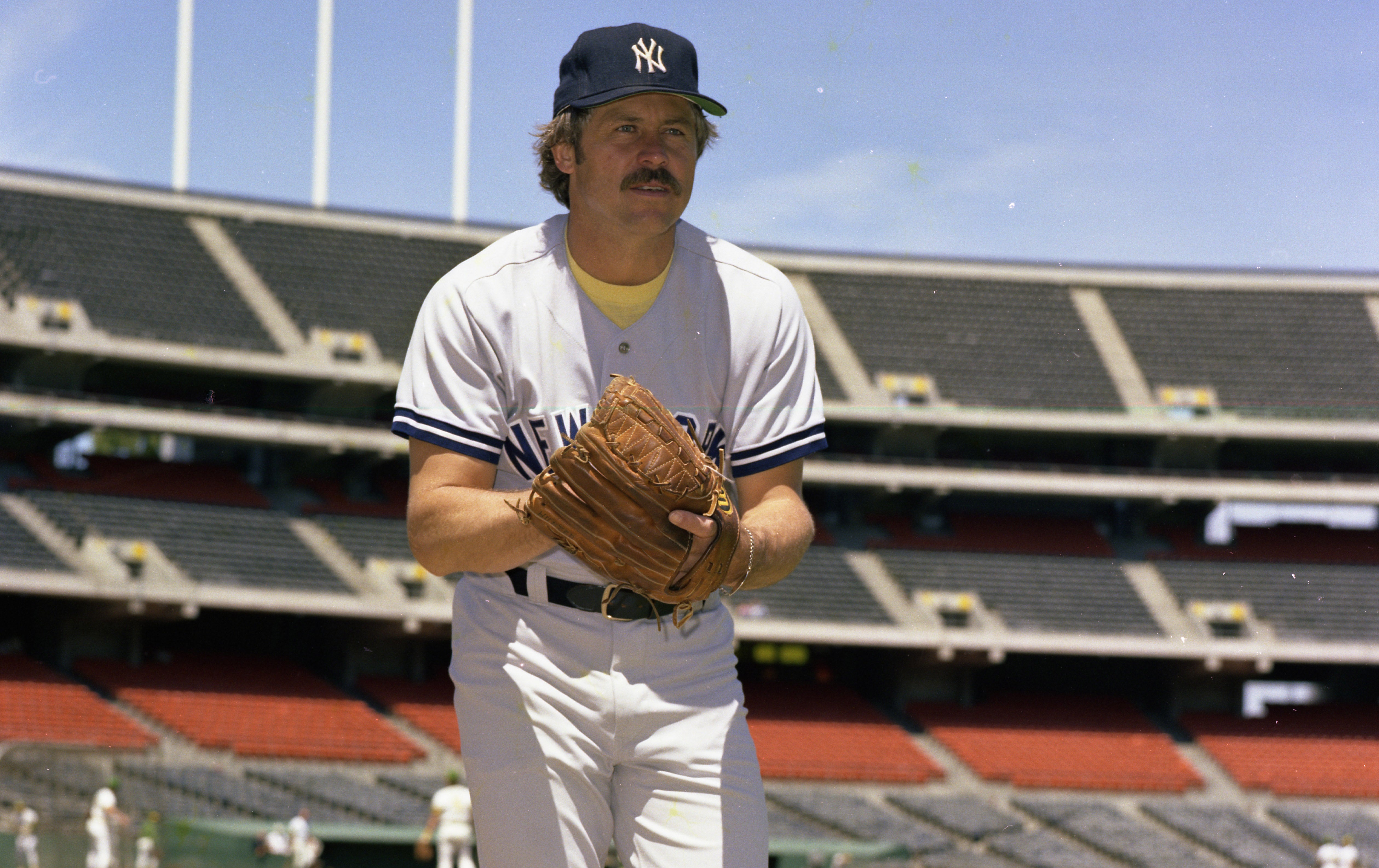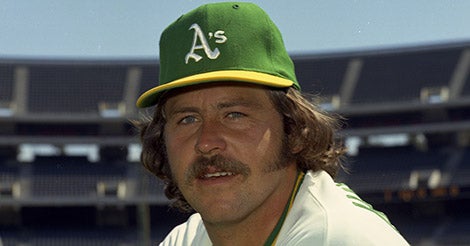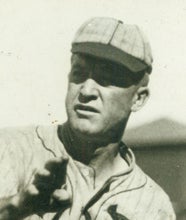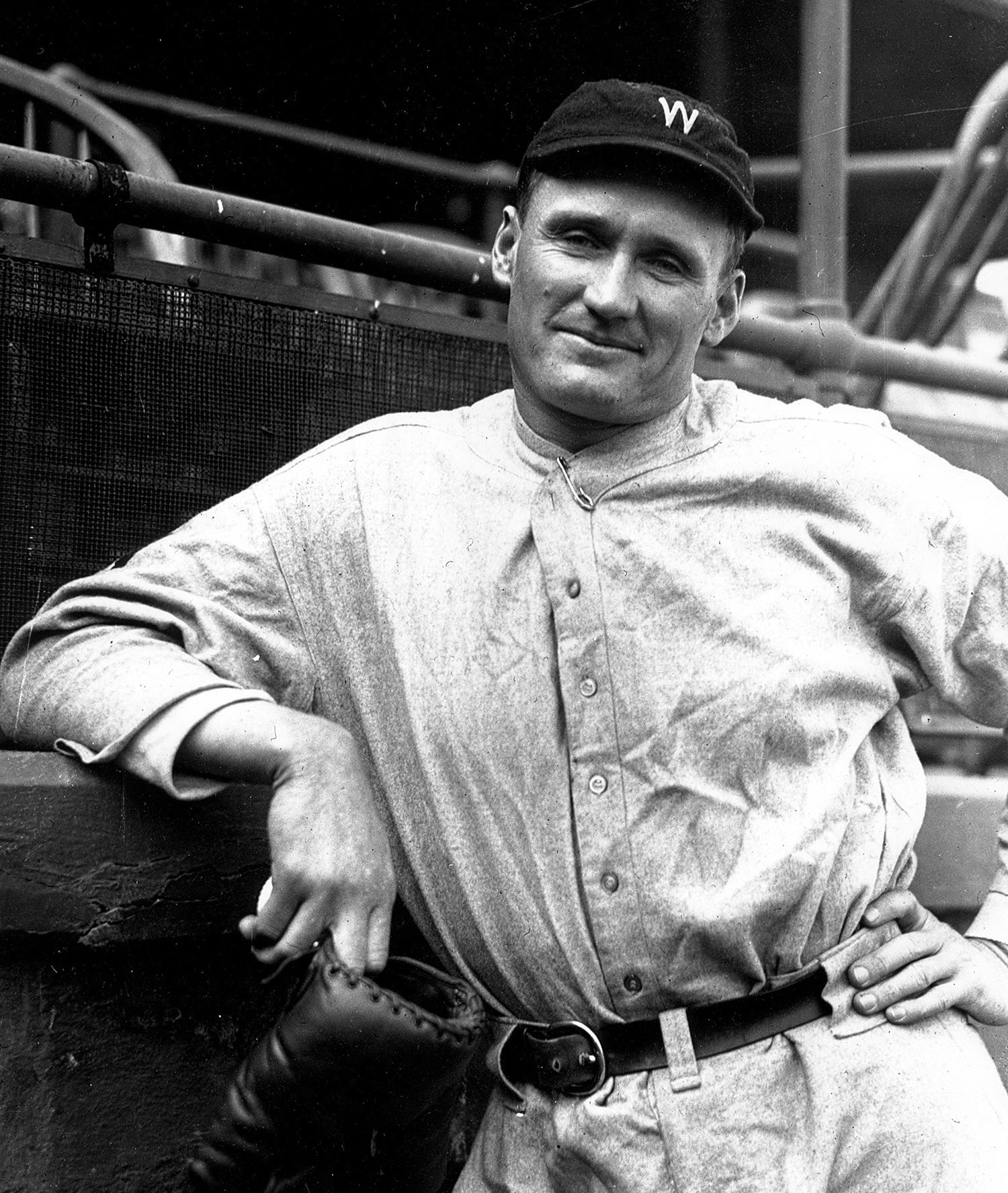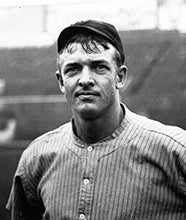- Home
- Our Stories
- Hunter's 200th win puts him in rare company
Hunter's 200th win puts him in rare company
At just 30 years old, Jim “Catfish” Hunter reached 200 career wins and appeared headed for 300.
But less than three years after Hunter won his 200th game, the durable right-hander was done with his big league career.
In between his first victory and his retirement following the 1979 season, however, Hunter proved to be one of the game’s best pitchers.
On Sept. 19, 1976, Hunter allowed one run over five innings in a rain-shortened complete game, leading the Yankees past the Brewers 2-1 at County Stadium to pick up his 200th win.
One of 21 complete games Hunter would author that year, the victory put Hunter in a category with Walter Johnson and Christy Mathewson as the only three modern era (post 1900) pitchers to win 200 games before their 31st birthday.
Hall of Fame Membership
There is no simpler, and more essential, way to demonstrate your support than to sign on as a Museum Member.
Injuries would limit Hunter to just 24 more big league victories, and 1976 proved to be the final season where Hunter topped the 200-inning mark.
But for a 10-year stretch from 1967-76, the amazingly durable Hunter averaged better than 277 innings pitched and 16 complete games per season.
He also routinely permitted 25-plus home runs per season, finishing his career with 374 home runs allowed – ranking in the Top 10 all-time in that category at the time of his retirement.
But Hunter’s career earned-run average of 3.26 attested to his ability to pitch his best when the game was on the line.
“My three brothers taught me to throw strikes,” Hunter told The New York Times when he was inducted into the Hall of Fame on July 26, 1987. “And thanks to them I gave up 374 home runs in the big leagues.”
Catfish Hunter joined the Yankees in 1975 after a contract breach made him a free agent following 10 seasons with the Athletics, including three as a teammate with Dave Hamilton (right). Those three seasons, 1972-74, ended with the A's as World Champions each time. (Doug McWilliams/National Baseball Hall of Fame and Museum)
Share this image:
But Commissioner Peter Ueberroth may have said it better that same day, when he introduced Hunter as “one of the best money pitchers ever to toe the rubber.”
In 15 seasons, Hunter led his team to the Postseason seven times, posting a 9-6 record with the exact same ERA – 3.26 – as he did in the regular season.
The ace of the 1972-74 Oakland Athletics teams that won three straight World Series titles, Hunter was named to eight All-Star teams and finished fourth-or-better in the AL Cy Young Award voting each season from 1972-75, winning top honors in 1974.
He also helped establish the market for free agents in baseball when he left the Athletics for the Yankees following the 1974 season as the result of a breach of contract by A’s owner Charlie Finley. The Yankees won a heated bidding war for Hunter’s services, agreeing to pay Hunter a then-record $3.25 million over five seasons.
When free agency was established through the arbitration process and collective bargaining following the 1976 season, the market that Hunter helped establish quickly flourished. Hunter retired following the 1979 season.
He passed away from the effects of amyotrophic lateral sclerosis – also known as Lou Gehrig’s Disease – on Sept. 9, 1999.
Craig Muder is the director of communications for the National Baseball Hall of Fame and Museum

